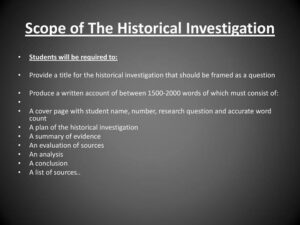Back to: MICROBIOLOGY 300 LEVEL
Welcome to class!
Hello there, brilliant star ! I’m so glad to have you here today. You’re not just any student—you’re a future expert, a problem-solver, and a light to your generation. Thank you for showing up for yourself today. Let’s get into something fascinating that shapes the very foundation of our field—the History and Scope of Microbiology. Imagine this like discovering the origin story of a superhero—yes, that’s how important this is!
History And Scope
What is Microbiology?
Let’s start simple. Microbiology is the study of very tiny living things—so small that you need a microscope to see them. These little creatures, called microorganisms or microbes, include bacteria, viruses, fungi, algae, and protozoa. Now imagine eating your favourite Nigerian jollof rice that’s gone bad because it was left out too long. That’s microbes at work! Or think about how your garri ferments to make fufu—that’s also microbes doing their thing. You see, they’re all around us, and they affect our lives in more ways than we often realise.

History of Microbiology
The history of microbiology is like a journey of great discovery. It didn’t just start one day with a big bang—it grew through curious minds and ground-breaking inventions.
It all began in the 17th century, with a man named Antonie van Leeuwenhoek from the Netherlands. He wasn’t a scientist by training, just a cloth merchant with a curious heart. He built his own simple microscope and became the first person to observe living microorganisms—he called them “animalcules”. Imagine discovering a whole new world on something as ordinary as a drop of water!
Later on, in the 19th century, microbiology really began to shine, thanks to people like Louis Pasteur, the French scientist who proved that microorganisms were behind fermentation and spoilage. He introduced the idea of pasteurisation—yes, that’s where we get the name on milk packs. Then there was Robert Koch, a German doctor who found the links between specific microbes and diseases like tuberculosis and cholera.
These discoveries helped build the field of microbiology as we know it today. Think about how this knowledge has saved millions of lives—vaccines, antibiotics, sterile surgeries, clean drinking water—none of it would have been possible without the early work of these pioneers.
Scope of Microbiology
Microbiology is not just about sickness or germs—it’s a wide world with so many branches, each one touching our lives every day:
Medical Microbiology – Studies disease-causing microbes. This is how we understand illnesses like malaria or COVID-19.
Industrial Microbiology – Involves using microbes to produce food, medicine, and even biofuels. Ever heard of penicillin? Thank microbes for that.
Environmental Microbiology – Focuses on how microbes interact with the environment, like cleaning oil spills or helping crops grow better.
Agricultural Microbiology – Looks at how microbes can improve soil fertility and protect plants from pests.

Food Microbiology – Ensures our suya, moi moi, and yoghurt are safe to eat.
Virology, Bacteriology, Mycology and Parasitology – Specialised areas focusing on viruses, bacteria, fungi, and parasites respectively.
Microbiology is a big deal, and as a 300-level microbiology student, you’re standing at the centre of a field that can transform health, industry, agriculture, and even the environment in Africa and beyond.
Summary
- Microbiology is the study of tiny organisms that often require microscopes to be seen.
- It began with Antonie van Leeuwenhoek in the 1600s and grew with scientists like Louis Pasteur and Robert Koch.
- Its scope includes medical, environmental, industrial, and agricultural microbiology, and many more.
Evaluation
- Who is considered the father of microbiology, and what did he discover?
- Name three branches of microbiology and give a practical example of each.
- Why is Louis Pasteur important in the history of microbiology?
You’ve just unlocked one of the most exciting parts of microbiology, and that’s no small feat. Keep showing up like this, and nothing will stop you from becoming the kind of microbiologist Nigeria and Africa need. Keep learning, keep growing, and remember—Afrilearn is always right here with you, every step of the way. See you in the next lesson!
